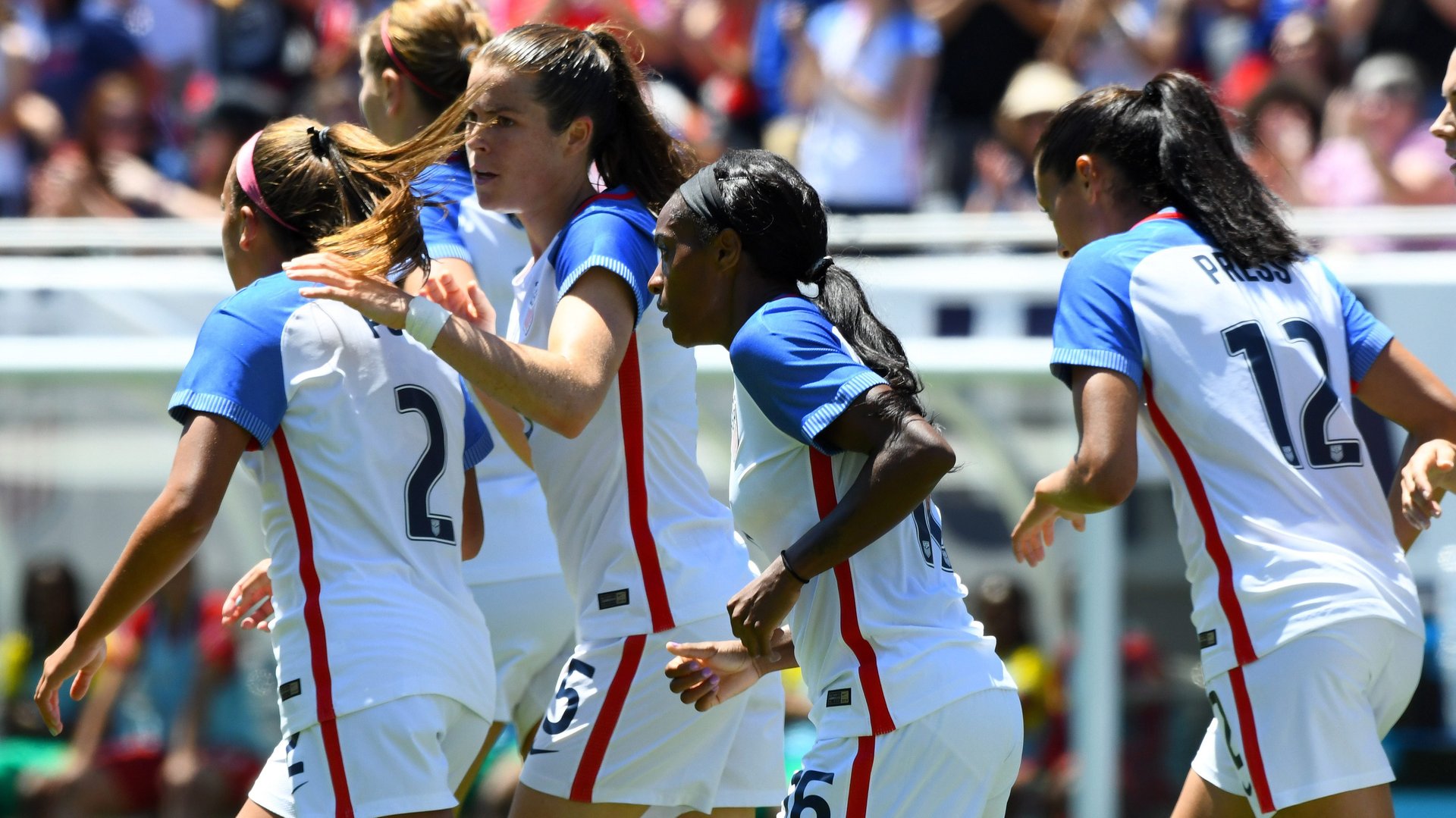USA’s soccer world champions are playing to win at equal pay too
The US women national soccer team beat South Africa 1-0 in an exhibition match July 9. It’s still losing against its employer, the US Soccer Federation, in its fight to get equal pay.


The US women national soccer team beat South Africa 1-0 in an exhibition match July 9. It’s still losing against its employer, the US Soccer Federation, in its fight to get equal pay.
Members of the team have been trying to change their contract with the federation, arguing they earn considerably less than their counterparts in the men’s national team even though they perform better.
As interest in the team ramps up ahead of the Rio Olympics, its members launched a public campaign (paywall) this week to press the federation into paying them more. When off the field, they will be wearing t-shirts with the hashtag #equalplayequalpay. During games, they’ll sport body tattoos with the same hashtag.
It’s been an ugly fight. In February, the federation filed a lawsuit against the team’s union to prevent members from striking. Five star players, including goalkeeper Hope Solo, responded by filing a complaint with the US Equal Opportunity Commission accusing the federation of engaging in wage discrimination.
Among their arguments is that their World Cup bonuses are considerably lower than those their male counterparts were promised. The women’s team has won the World Cup three times, including last year. The men’s team has never won it.)
Here is a summary of the differences compiled by PBS:
That’s just part of the unequal treatment, the women’s team has said. Its expenses in 2015 were about a third of the men’s team, Elle magazine reports. While male players travel first-class and stay at posh hotels, female players fly in coach and sleep in more modest digs. And when the field has artificial turf, the women almost always have to play on it, while the men get it replaced with natural grass.
The federation has said that the differences stem from the different pay systems negotiated by each team. The men’s team contract emphasizes bonuses, while the women’s team contract focuses on salaries and includes benefits that men don’t have such as severance, injury pay and maternity leave.
After the win Saturday, the federation ran a story lauding Solo for becoming “the first goalkeeper in international history to earn 100 international shutouts”. There was no mention of the wage dispute.